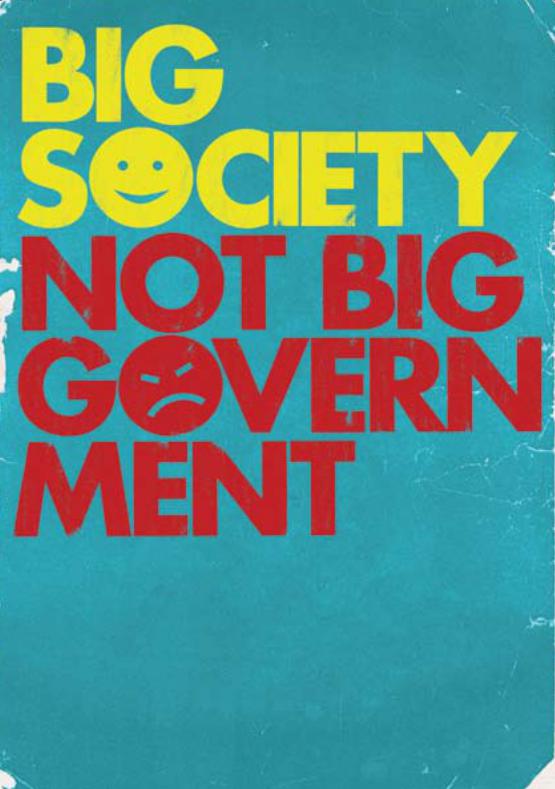
Программа Консерваторов
.pdf
Japan
Japan is a world leader in the development of green technology. It invests in R&D at almost double the UK’s rate, and Japanese companies hold roughly 30 per cent of green technology patents filed in the US. As a result, Japan is far ahead of the UK in the trillion pound market for green technology. This leadership is not just good for the economy; it’s also good for the environment. For example, thanks to the widespread use of green technologies, Japan has the lowest carbon intensity of any major economy.

CHANGE THE ECONOMY | BUILD A GREENER ECONOMY
Build a greener economy
We will reduce UK greenhouse gas emissions and increase our share of global markets for low carbon technologies.
Labour have said the right things on climate change, but these have proved little more than warm words. Despite three White Papers,
a multitude of strategies and endless new announcements, the UK now gets more of its energy from fossil fuels than it did in 1997. Our performance on emissions has been criticised by environmental groups and we have the worst record of any major EU nation when it comes to renewable energy. This must change to safeguard Britain and the world’s future.
We need to cut our carbon emissions to tackle the challenge of climate change. But the
low carbon economy also provides exciting opportunities for British businesses. We will encourage private sector investment to put Britain at the forefront of the green technology revolution, creating jobs and new businesses across the country.
Create a low carbon future
This wave of low carbon innovation we want to unleash requires investment, so we will create Britain’s first Green Investment Bank
– which will draw together money currently divided across existing government initiatives, leveraging private sector capital to finance new green technology start-ups. We will create
green Individual Savings Accounts to help provide the financial backing we need to create a low carbon economy.
A credible and sustainable price for carbon is vital if we are to see adequate and timely investment in new electricity generation.
Whatever the carbon content of electricity generated, operators considering new investments in projects with a life of several decades need to know where they stand. We will reform the Climate Change Levy to provide a floor price for carbon, delivering the right climate for investment in low carbon energy production.
We will increase the proportion of tax revenues accounted for by environmental taxes, ensuring that any additional revenues from new green taxes that are principally designed as an environmental measure to change behaviour are used to reduce the burden of taxation elsewhere.
31

Aberystwyth
Aberystwyth is an important cultural and education centre. Aberystwyth University has over 12,000 students and is one of the leading universities in the country. The National Library of Wales is based in Aberystwyth, as are the Welsh Books Council and the offices of the Dictionary of the Welsh language, Geiriadur Prifysgol Cymru. Aberystwyth has a range of neighbourhoods – from Victorian terraces to 1960s suburban semis. Over 70 per cent of British people live in suburbs, which are a defining feature of modern Britain. Suburbs play a vital role in the success of Britain’s cities, providing housing and green spaces for millions of families. Suburbs are places where a sense of community can flourish, and where people raise children and play an active part in neighbourhood groups.

Change society


change society | introduction
Mend our broken society
Our society is broken, but together we can mend it: we can build the Big Society. A Conservative government will make Britain the most family-friendly country in Europe. We will back the NHS, which matters more to families than anything. We will reform education, with new schools – and higher standards and improved discipline for all. We will tackle welfare dependency and the causes of poverty, and fight back against crime.
Despite Labour’s massive expansion of the state, many people’s quality of life is getting worse, not better. The number of people living in poverty has risen in the last three years, and inequality is at a record high. We have some of the worst rates of family breakdown in the world. In some of the most deprived parts of the country, life expectancy has actually fallen. The achievement gap at school between the richest and poorest is growing.
This terrible record of failure is not just a problem that affects our society and ruins people’s lives. It affects our economy too, costing billions and wasting potential. It is the result of a political approach that addresses the symptoms, rather than the underlying causes, of social breakdown; one that relies on top-down government intervention and bureaucratic micro-management.
So we need a new approach: social responsibility, not state control; the Big Society, not big government. Only in this way will we tackle the causes of poverty and inequality, rather than just the symptoms. Only in this way will we transform the quality of our public services. And only in this way will we rebuild shattered communities and repair the torn fabric of society.
So we will redistribute power from the central state to individuals, families and local communities. We will give public sector workers back their professional autonomy. They will be accountable to the people they serve and the results they achieve will be made transparent. If
people don’t like the service they receive they will be able to choose better alternatives. In this way, we will create opportunities for people to take power and control over their lives. Our approach is absolutely in line with the spirit of the age: the post-bureaucratic age.
This vision demands a cultural change across the country. Our success will depend not just on the actions we take but on society’s response. By promoting equality and tackling discrimination, our policies, like recognising civil partnerships as well as marriage in the tax system and helping disabled people live independently, will give everybody the chance to play their part. This way, we can make Britain fairer and safer; a country where opportunity is more equal.
35


change society | build the big society
Build the Big Society
We will use the state to help stimulate social action, helping social enterprises to deliver public services and training new community organisers to help achieve our ambition of every adult citizen being a member of an active neighbourhood group. We will direct funding to those groups that strengthen communities in deprived areas, and we will introduce National Citizen Service, initially for 16 year olds, to help bring our country together.
The size, scope and role of government in the UK has reached a point where it is now
inhibiting, not advancing, the progressive aims of reducing poverty, fighting inequality, and increasing general well-being. We can’t go on pretending that government has all the answers.
Our alternative to big government is the Big Society: a society with much higher levels of personal, professional, civic and corporate responsibility; a society where people come together to solve problems and improve life
for themselves and their communities; a society where the leading force for progress is social responsibility, not state control.
The Big Society runs consistently through our policy programme. Our plans to reform public services, mend our broken society, and rebuild trust in politics are all part of our Big Society agenda. These plans involve
redistributing power from the state to society; from the centre to local communities, giving people the opportunity to take more control over their lives.
But we recognise that it is not enough to create opportunities for people to get involved in building the Big Society; our reform plans require a social response in order to be successful. So building the Big Society is not just a question of the state stepping back and hoping for the best: it will require an active role for the state. The state must take action
to agitate for, catalyse and galvanise social renewal. We must use the state to help remake society.
Public service reform
Our public service reform programme will enable social enterprises, charities and voluntary groups to play a leading role in delivering public services and tackling deep-rooted social problems.
We will strengthen and support social enterprises to help deliver our public service reforms by creating a Big Society Bank, funded from unclaimed bank assets, to provide
new finance for neighbourhood groups, charities, social enterprises and other nongovernmental bodies.
37

change society | build the big society
This will provide social enterprises with the start-up funding and support they need to bid for government contracts or work towards delivering services under a payment by results model.
Britain has a proud and long-standing charitable tradition, and we are convinced that the voluntary sector should play a major part in our civic renewal. We will introduce a fair deal on grants to give voluntary sector
organisations more stability and allow them to earn a competitive return for providing public services. We will work with local authorities to promote the delivery of public services by social enterprises, charities and the voluntary sector.
Neighbourhood groups
Our reform agenda is designed to empower communities to come together to address local issues. For example, we will enable parents to start new schools, empower communities to take over local amenities such as parks
and libraries that are under threat, give neighbourhoods greater control of the planning system, and enable residents to hold the police to account in neighbourhood beat meetings. These policies will give new powers and rights to neighbourhood groups: the ‘little platoons’ of civil society – and the institutional building blocks of the Big Society.
Our ambition is for every adult in the country to be a member of an active neighbourhood group. We will stimulate the creation and development of neighbourhood groups, which can take action to improve their local area. We will use Cabinet Office budgets to fund the training of independent community organisers to help people establish and run neighbourhood groups, and provide neighbourhood grants to the UK’s poorest areas to ensure they play a leading role in the rebuilding of civic society.
To stimulate social action further, we will:
•transform the civil service into a ‘civic service’ by making sure that participation in social action is recognised in civil servants’ appraisals;
•launch an annual Big Society Day to celebrate the work of neighbourhood groups and encourage more people to take part
in social action;
•provide funding from the Big Society Bank to intermediary bodies with a track record of supporting and growing social enterprises; and,
•develop a measure of well-being that encapsulates the social value of state action.
38

change society | build the big society
National Citizen Service
Building the Big Society means encouraging the concept of public-spirited service – the idea that everyone should play a part in making their communities stronger.
That is why we will introduce National Citizen
Service. The initial flagship project will provide a programme for 16 year olds to give them a chance to develop the skills needed to be active and responsible citizens, mix with people from different backgrounds, and start getting involved in their communities.
Even in these difficult times, the British people have demonstrated their desire to give money and time to good causes. We will introduce new ways to increase philanthropy, and use the latest insights from behavioural economics to encourage people to make volunteering and community participation something they do on a regular basis.
The National Lottery
We will restore the National Lottery to its original purpose and, by cutting down on administration costs, make sure more money goes to good causes. The Big Lottery Fund will focus purely on supporting social action through the voluntary and community sector, instead of Ministers’ pet projects as at present. Sports, heritage and the arts will each see their original allocations of 20 per cent of good cause money restored.
Sport and the Olympics
We will deliver a successful Olympics that brings lasting benefits for the country as a whole. Part of the community sports budget of the National Lottery will be responsible for delivering an Olympic legacy, including the vigorous promotion of competitive sports through a national Olympic-style school competition. To support high-level sport further, we will:
•work with the Scottish government to deliver a top-quality Commonwealth Games in Glasgow in 2014;
•ensure that the 2013 Rugby League and the 2015 Rugby Union World Cups are successful; and,
•strongly support England’s bid to host the 2018 Football World Cup.
39
